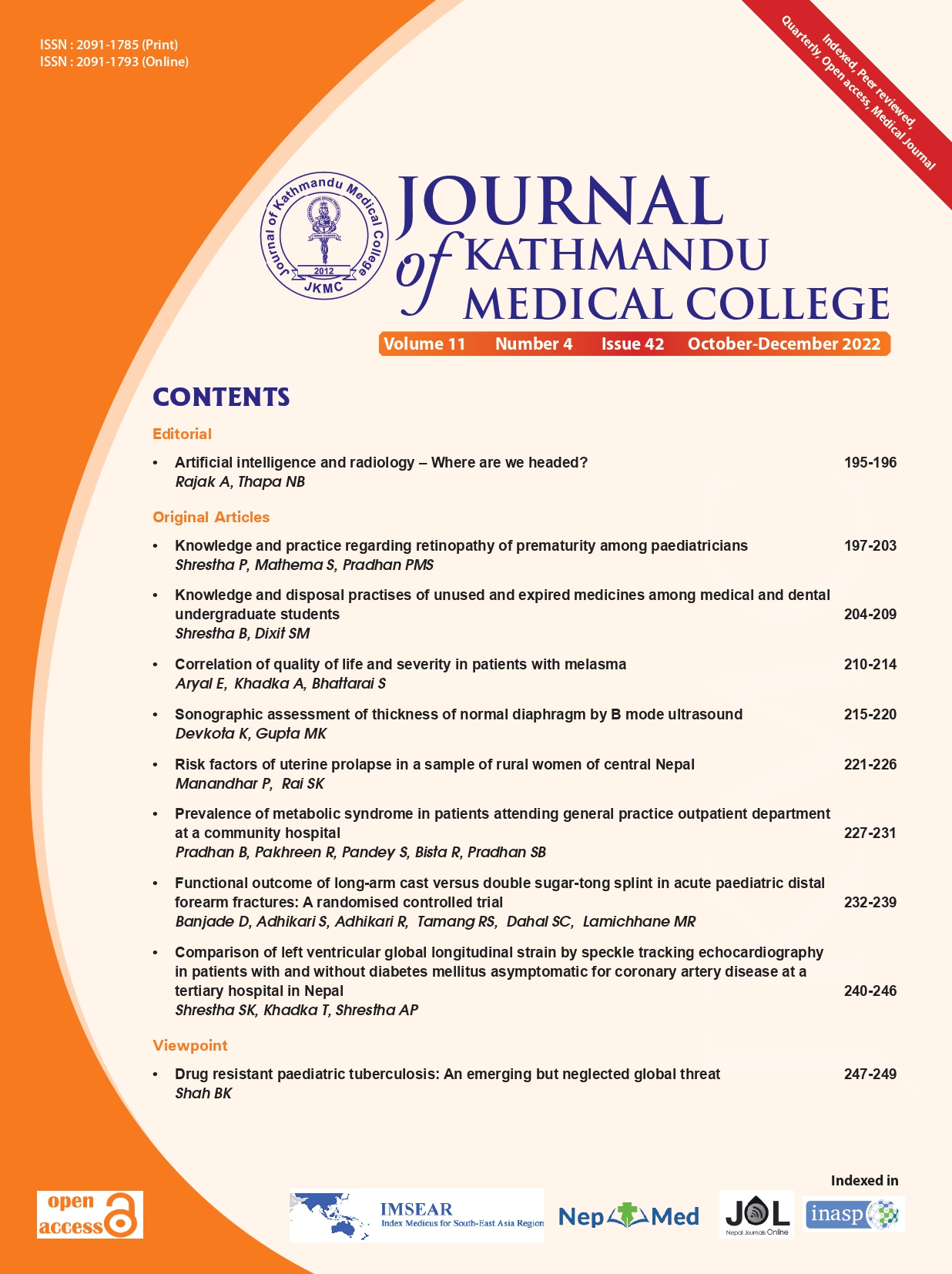Knowledge and disposal practises of unused and expired medicines among medical and dental undergraduate students
DOI:
https://doi.org/10.3126/jkmc.v11i4.53548Keywords:
Disposal, Knowledge, Medicine, PracticeAbstract
Background: Majority of the patients do not consume their medicines exactly as prescribed and thus leave behind unused medicines at the place of stay. The improper disposal of these unused medicines has led to environmental as well as health hazards.
Objectives: To assess the knowledge, awareness, and practice of the first and second year medical and dental undergraduates towards the disposal of unused and expired medicines.
Methods: This descriptive cross-sectional study was conducted among 206 medical and dental students of a medical college in Kathmandu valley, Nepal. Data were collected by census method from 2022 March to 2022 May after ethical clearance. It was based on an online structured questionnaire to assess the knowledge, awareness, and practice about the disposal of leftover medications. Data analysis was done using Microsoft Excel 2016.
Results: A total of 206 students participated in the study of which 161 (78.2%) were from MBBS and 45 (21.8%) from BDS stream. It was noted that 118 (57.3%) students obtained their medicines on prescription, 76 (37.1%) directly from the counter, and 11 (5.3%) obtained from their friends or relatives. Majority (179, 86.9%) of the students checked the expiry date before buying the medicines, 134 (65%) students were aware about the harmful consequences of inappropriate disposal of medicines on health and environment.
Conclusion: Proper knowledge on disposal practises of unused and expired medicines among medical and dental students’ needs much improvement. Educational interventions may help improve awareness of proper methods of medicine disposal.
Downloads
Downloads
Published
How to Cite
Issue
Section
License
Copyright (c) 2022 Journal of Kathmandu Medical College

This work is licensed under a Creative Commons Attribution-NonCommercial 4.0 International License.
Copyright © Journal of Kathmandu Medical College
The ideas and opinions expressed by authors or articles summarized, quoted, or published in full text in this journal represent only the opinions of the authors and do not necessarily reflect the official policy of Journal of Kathmandu Medical College or the institute with which the author(s) is/are affiliated, unless so specified.
Authors convey all copyright ownership, including any and all rights incidental thereto, exclusively to JKMC, in the event that such work is published by JKMC. JKMC shall own the work, including 1) copyright; 2) the right to grant permission to republish the article in whole or in part, with or without fee; 3) the right to produce preprints or reprints and translate into languages other than English for sale or free distribution; and 4) the right to republish the work in a collection of articles in any other mechanical or electronic format.




